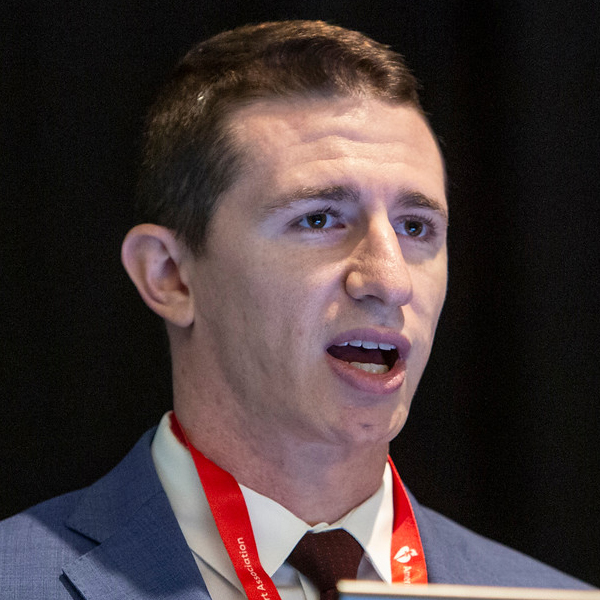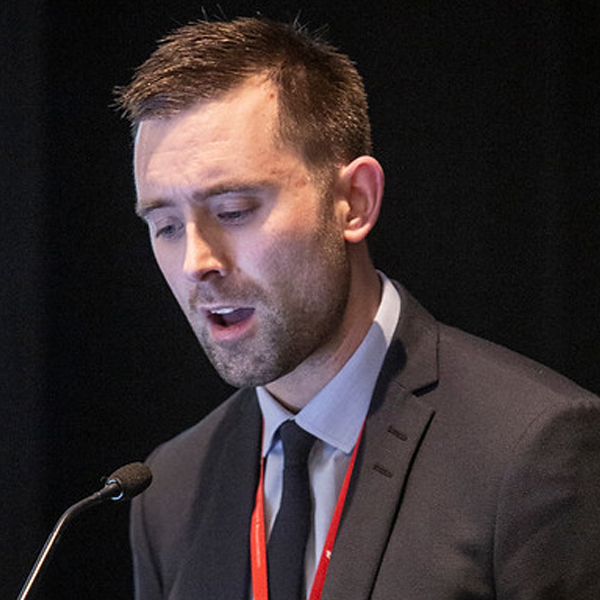ReSS 2019 Science News
Resuscitation Science Symposium 2019
Nov. 16–17, 2019
The Philadelphia 201 Hotel | 201 N. 17th St., Philadelphia, Pennsylvania
Selected science from Sunday, Nov. 17

Echocardiographic Evaluation of Left Ventricular Recovery After Refractory Out-Of-Hospital Cardiac Arrest
Rajat Kalra | University of Minnesota, Minneapolis, MN
- RESULTS: In a small patient sample, patients with refractory ventricular tachycardia/ventricular fibrillation (VT/VF) OHCA cardiac arrest and treated with venoarterial extracorporeal membrane oxygenation (VA-ECMO) had significant recovery of ventricular function noted on echocardiography.
- Kalra's Abstract
- Kalra's presentation slides (PDF)

Public Access Defibrillators: Sex-Based Inequities in Access and Application
Brian E Grunau | St Paul's Hospital, Vancouver, BC, Canada
- RESULTS: Data from the North American Resuscitation Outcomes Consortium (ROC) Epistry dataset showed that women had less OHCA’s in public locations that needed PAD and were less likely to have PAD used by bystanders in public locations.
- Grunau's Abstract
- Grunau's presentation slides (PDF)
The Usefulness of Neuron-Specific Enolase in Cerebrospinal Fluid to Predict Neurological Prognosis in Cardiac Arrest Survivors Who Underwent Target Temperature Management: A Prospective Observational Study
Jung Soo Park | Chungnam National University, Daejeon, South Korea
- RESULTS: A comparison of serum neuron-specific enolase (NSE) and cerebrospinal fluid NSE for 6-month neurologic outcome in OHCA survivors who underwent target temperature management (TTM) found the CSF-NSE to be predictive and sensitive markers of poor 6-month neurological outcome.
- Park's Abstract
- Park's presentation slides (PDF)
Association Between Serum Lactate During Cardiopulmonary Resuscitation and Survival in Adult Out-Of-Hospital Cardiac Arrest: A Multicenter Cohort Study (The Critical Study in Osaka, Japan)
Norihiro Nishioka | Daisuke Kobayashi, Kyoto University, Kyoto, Japan
- RESULTS: The Critical Study examines the role of serum lactate as a prognostic survival marker after OHCA. Higher serum lactate levels with a non-shockable rhythm before return of spontaneous circulation (ROSC) was associated with worse 1-month survival, suggesting a possible role for serum lactate as prognosis marker in OHCA in non-shockable rhythm.
- Nishioka's Abstract
- Nishioka's presentation slides (PDF)
Chest Compression Fraction Increased When Police Used AED That Analyses Heart Rhythm During CPR
Corina de Graaf | Amsterdam University Medical Centers, Amsterdam, Netherlands
- RESULTS: A new AED algorithm, cprINSIGHT™ Analysis Technology, that allows rescuers to continue chest compressions while it analyses the ECG, increased chest compression fraction compared to conventional AEDs.
- de Graaf's Abstract
- de Graaf's presentation slides (PDF)




